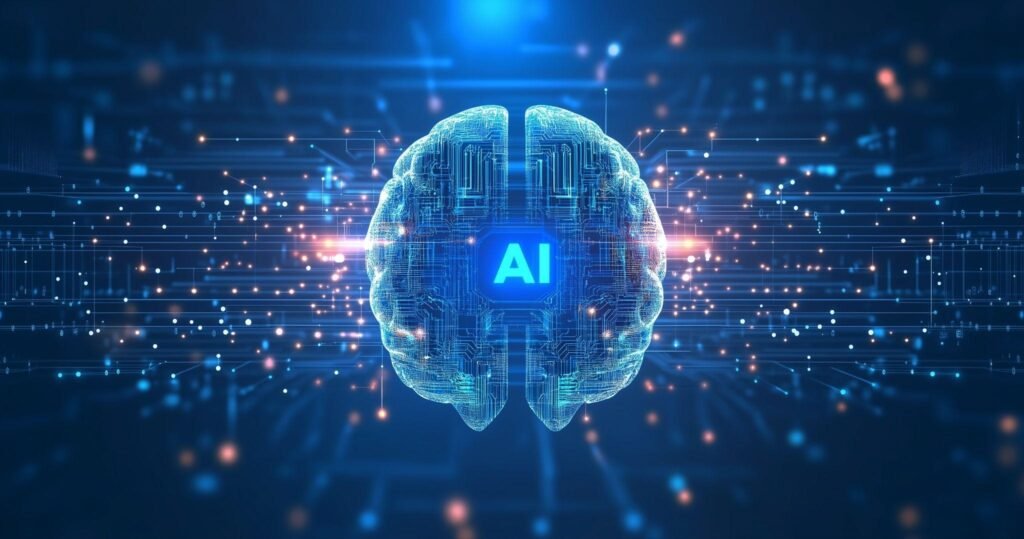What is Agentic AI?

Imagine systems that operate independently, harvesting vast amounts of data, and act autonomously to solve issues before we even notice them. That’s the promise of agentic AI, a leap beyond chatbots into autonomous agents that handle complex tasks and repetitive tasks alike. In this post, we’ll walk through what agentic AI is, how it works, where it shines, and how DevTools and ServiceNow AI Agents bring it to life in real-world settings.
What is agentic AI?
Agentic AI involves AI models and large language models (LLMs) that are meant to make decisions and execute tasks independently. In contrast with conventional generative AI, agentic AI should be able to plan, adapt, and act upon multi-step plans through reinforcement learning, real-time awareness, and an internal knowledge base.
Such agentic artificial intelligence is designed to collect real-time data, reason over it, and find a solution to problems as it learn through feedback. They are actual intelligent machine agents who could perform agentic AI functions.
How Does Agentic AI Work?
- Perception: Agents gather vast amounts of data from sensors, chats, CRM, supply chain logs, or real-time feeds.
- Reasoning: Powered by LLMs, the agent uses reinforcement learning, knowledge representation, and predictive models to interpret information.
- Planning & Decision-Making: It sets goals (e.g., optimize inventory), weighs trade-offs using utility functions, and formulates a plan step by step.
- Action Execution: It triggers APIs, workflows, or automations, just like a human would, and then operates independently.
- Learning Loop: Using reinforcement learning, agentic AI continuously refines its strategies based on success or failure.
In effect, these systems can solve complex tasks like automated supply chain management, customer service escalation, or IT incident resolution without direct human prompts.
What are the advantages of agentic AI?
The agentic AI are intelligent systems that plan, act, and learn without human intervention to accomplish their goals, which is to make them a strong asset in contemporary business undertakings. These AI agents pose as digital teammates, introducing a sense of autonomy, flexibility, and understanding to several industries.
- Autonomy at scale: Operate across thousands of tasks without getting tired.
- Real-time flexibility: Change plans during execution, e.g., use real-time weather information to redirect shipments.
- Increased productivity: Free teams from routine operations, allowing them to focus on strategy.
- Better customer experience: Customer service representatives have the opportunity to solve problems before they become emergencies.
- Knowledge-aided decisions: Smart answers that can be based on LLMs and up-to-date knowledge.
- Data-driven learning: Utilize performance-based learning to accelerate progress over time.
They are digital co-workers that work similarly to the AI models-powered ones, agentic AI work, and non-stop learning.
What are the use cases of agentic AI today?
Shipping schedules are managed for fluctuations using real-time data.
- Automation of customer service: Agents will be able to review claims, process money returns, or escalate issues concerning the customer’s history and CRM records.
- IT operations: Platforms such as ServiceNow AI Agents offer the ability to use tools to auto-solve password resets, typed incidents, and closing of mundane tickets.
- Financial trading: Automated Agent trading agents make trades according to changes in the market, and learn the best strategies.
- Code automation: programmers collaborate with agents and code, test, and run that code as a super-assistant language model.
- Medical and testing: The use of agents would be to analyze medical tests and propose options with regard to real-time patient data.
Y Combinator startups, as well as larger firms like Deloitte, are implementing agent-based AI to market, financial, and frontline services.
What’s the difference between agentic AI and Generative AI?
While both fall under the umbrella of artificial intelligence, agentic AI and generative AI serve fundamentally different purposes. Generative AI focuses on content creation, while agentic AI takes action based on reasoning and goals.
- Generative AI (chatbots, image generators) create content reactively to prompts.
- Agentic AI utilizes that content within a reasoning and action pipeline to solve problems autonomously, bridging content and decision-making with purpose and follow-through.
Think of it as the difference between GPT writing a travel plan (generative) and an agent booking flights, checking visa requirements, and sending confirmations (agentic).
What are the examples of agentic AI?
Agentic AI is already being deployed in real-world systems across industries, showcasing its ability to operate independently and handle complex, multi-step tasks.
- Manus: Autonomous LLM-based agent that writes and deploys code over hours, managing errors along the way.
- ServiceNow Virtual Agent: Automatically resolves frontline IT issues and orchestrates supply chain, HR, or service workflows.
- Algorithmic trading bots: Use reinforcement learning to autonomously buy/sell based on market signals.
- Autonomous IoT agents in manufacturing: Real-time sensor data controls production line responses.
- Digital assistants: Agents that organize meetings, collate reports, and draft memos seamlessly.
These are full-featured agentic AI systems, not just reactive LLMs.
What are the risks and drawbacks of agentic AI?
Despite its potential, agentic AI comes with significant challenges and risks that must be carefully managed through proper oversight and governance.
- Accountability gaps: Who is responsible if the agent errs? (Liability issues)
- Security exposures: Agent access to systems and customer service data is a high-risk vector.
- Bias and fairness: Agents can inadvertently learn detrimental behaviours unless properly regulated.
- Operational complexity: Building robust, multi-step agents with real-time capabilities involves deep engineering.
- Job displacement: Autonomous agents could replace roles raising ethical and workforce concerns.
Governance, oversight, and risk-aligned design are essential .
How do ServiceNow AI Agents power agentic AI?
ServiceNow brings agentic AI to life by embedding autonomous, intelligent agents directly into its enterprise platform. These AI agents go beyond automation—learning from data, adapting to changes, and acting with purpose across business functions.
- ServiceNow AI Agent Studio and Agent Fabric enable you to build domain-specific agents that integrate with workflows such as incident management, HR, IT, or supply chain operations.
- Agents can gather real-time data, access vast amounts of data across the Now Platform, and make data-driven decisions.
- Virtual Agents and Now Assist utilize LLMs to triage and resolve issues, while reinforcement learning enhances future decision-making.
- Logging, audit trails, and human-in-the-loop guardrails make them compliant and safe.
- Examples include self-healing workflows, closing routine tickets, and automating procurement based on inventory trends.
They are fully agentic: autonomous agents that act with purpose and continuously learn.
How Does DevTools Help?
At DevTools, we specialize in helping organizations unlock the full potential of agentic AI by guiding them through every phase—from strategy to scale. Our expertise ensures seamless integration and responsible innovation.
- Strategy & assessment: Identify high-value use cases like customer service bots or supply chain optimizers.
- Platform integration: Implement ServiceNow AI Agent Fabric, Now Assist, and governance setups.
- Technical design: Apply reinforcement learning, LLM orchestration, and knowledge base usage.
- Pilot launch: Start with targeted use cases, e.g., incident auto-resolution, meeting agent, or inventory rebalancer.
- Governance & compliance: Ensure auditability, ethical operation, and risk alignment.
- Training & scale-up: Educate teams, iterate with feedback, and expand into cross-functional autonomous agents like HR, Finance, or IoT.
Talk to DevTools and let us help you build the next generation of agentic AI.
Conclusion
Agentic AI represents a giant leap forward, enabling autonomous agents that use LLMs, reinforcement learning, and real-time data to perform specific tasks, handle complex tasks, and relieve teams from repetitive tasks. ServiceNow brings agentic AI into practical enterprise usage through Now Assist, AI Agent Studio, and integrated governance. With DevTools beside you, that journey becomes manageable, responsible, and impactful.
FAQs
Q: What is an agentic AI system?
An AI that acts autonomously using reasoning, planning, and learning capabilities to complete goals beyond simple prompt-response.
Q: What is an example of agentic AI?
Manus, a code-writing autonomous agent, completes end-to-end tasks like coding and deployment. Another is ServiceNow’s agentic agents resolving incidents without human prompts.
Q: What is the difference between generative AI and agentic AI?
Generative AI crafts content reactively. Agentic AI uses that content to analyze, plan, gather real time data, and act on its own account toward goals.
Q: What is the difference between agentic and non-agentic AI?
Agentic AI can set objectives, plan multi-step actions, learn from outcomes, and execute without ongoing human guidance. Non-agentic AI just reacts within a fixed frame.




